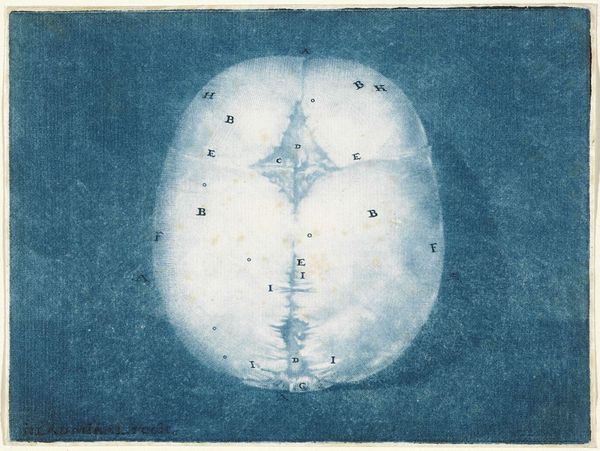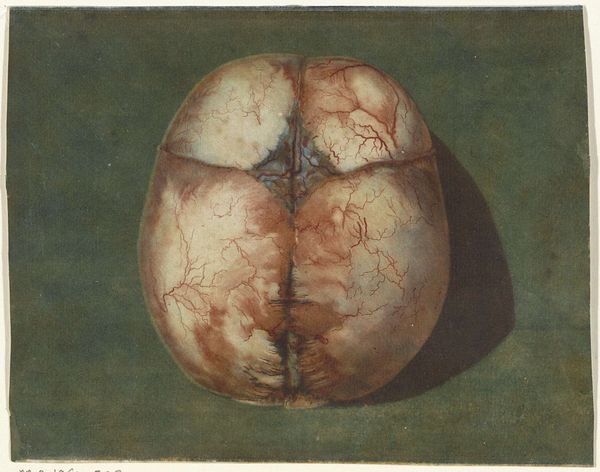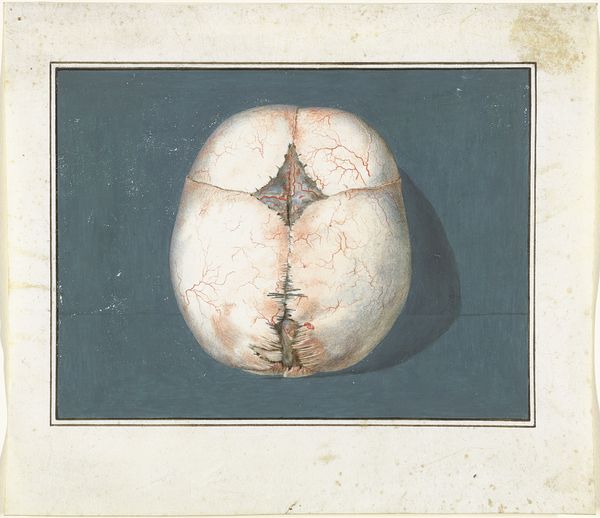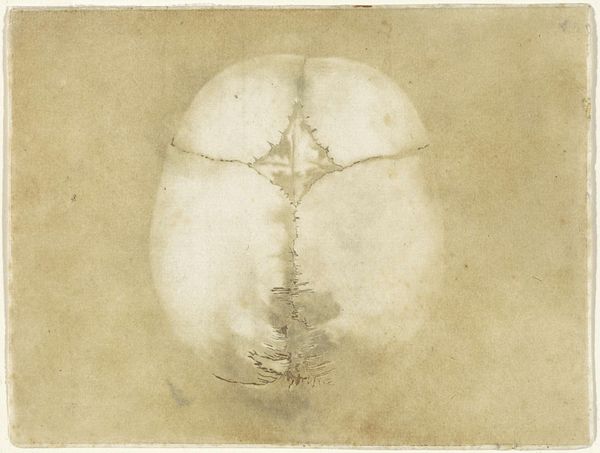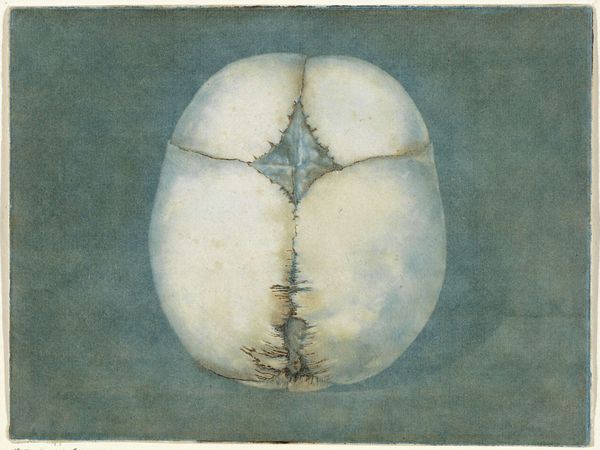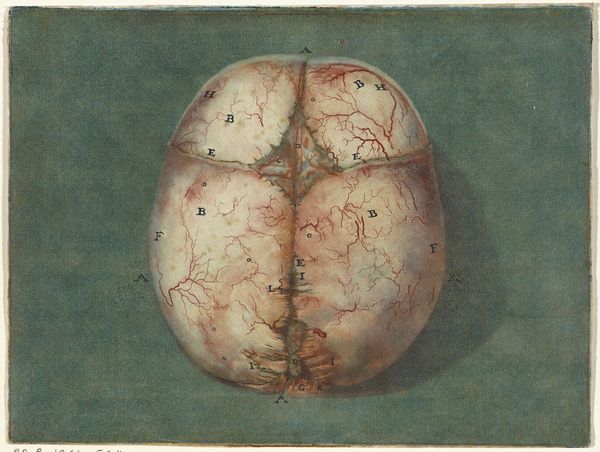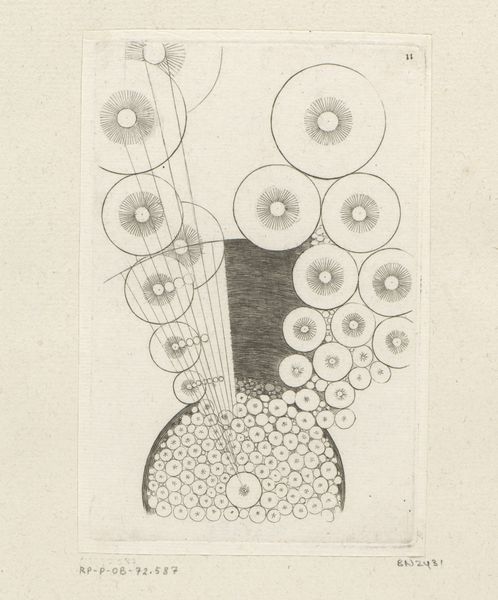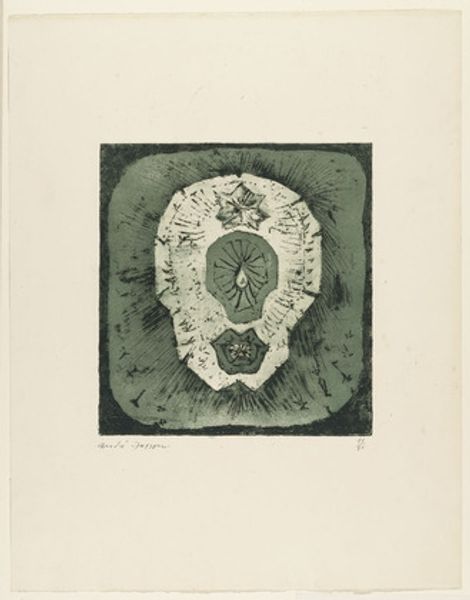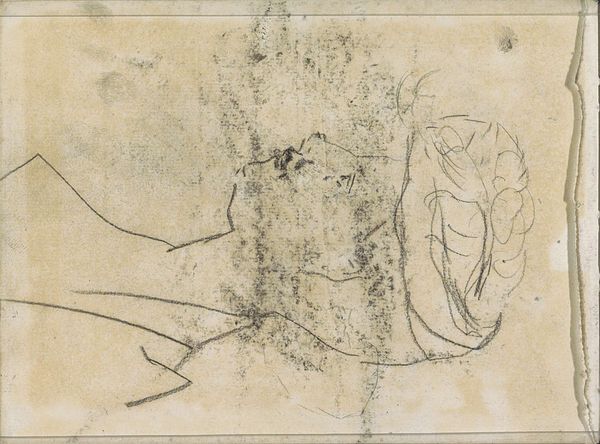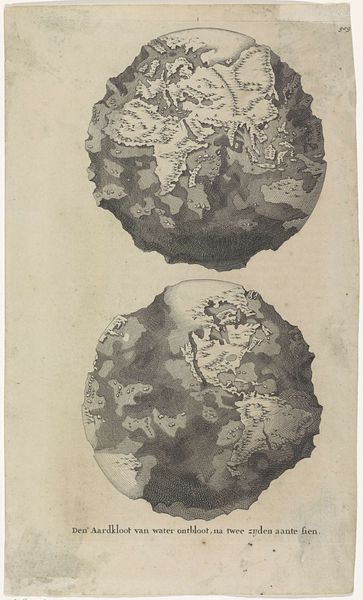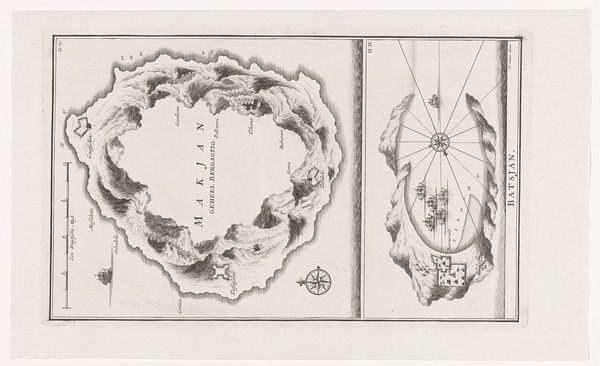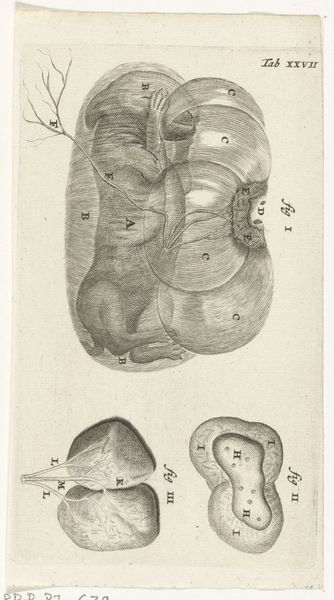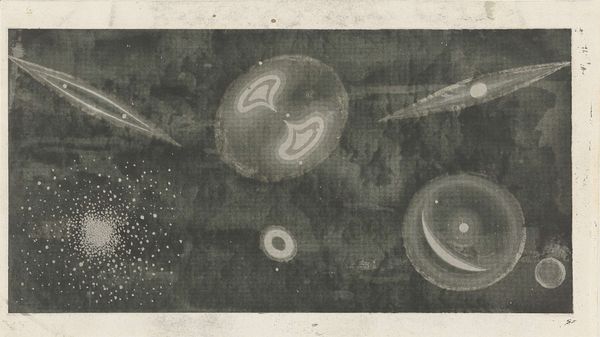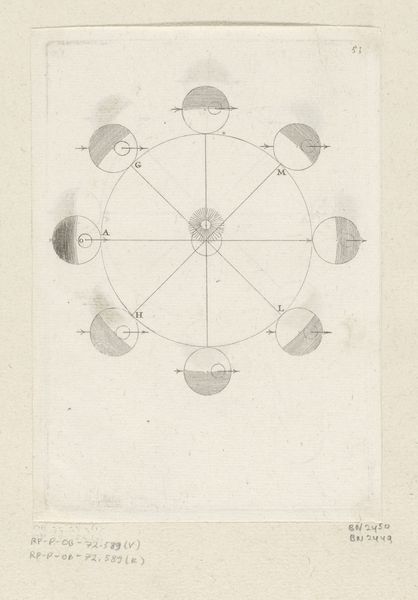
drawing, paper, ink
#
portrait
#
drawing
#
baroque
#
paper
#
ink
#
coloured pencil
#
ink colored
Dimensions: height 130 mm, width 172 mm
Copyright: Rijks Museum: Open Domain
Jan l’Admiral made this print of the brain and heart at an undetermined date using a copperplate engraving technique. Its display raises important questions about the public role of medical knowledge and the politics of imagery in the 18th century. In the Dutch Republic, scientific exploration and anatomical studies were flourishing. This print, with its detailed labeling, reflects the period’s growing interest in empirical observation and the scientific understanding of the human body. The very act of displaying such a print blurs the lines between scientific research, artistic representation, and public consumption. To truly understand this work, we need to examine the social conditions that shaped artistic and scientific production at the time. Archival records of medical institutions and publications from the period can reveal the complex interplay between science, art, and society. The meaning of this art is contingent on its social and institutional context.
Comments
rijksmuseum over 2 years ago
⋮
Around 1735 Jan l’Admiral printed several remarkable anatomical prints in colour, among others on commission for the celebrated physician Frederik Ruysch. For his illustrations of the cerebral membrane (the skull of an unborn child) and a human heart he experimented with ever different colours, and made various versions of them. The objective was to provide medical practitioners with the most precise and realistic images possible.
Join the conversation
Join millions of artists and users on Artera today and experience the ultimate creative platform.
